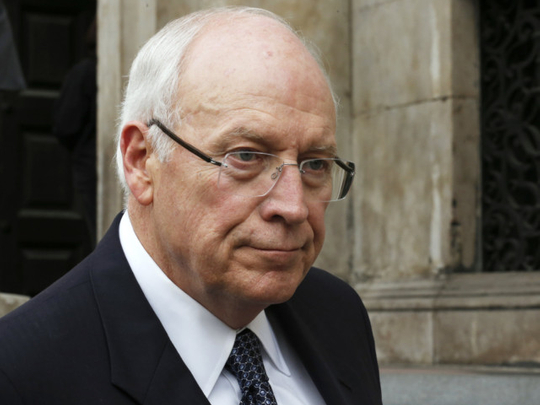
Like a corpse that sits bolt upright when electrocuted, US neoconservatives keep springing back to life. The electric charge comes at regular intervals — Syria’s use of chemical weapons, Russia’s annexation of Crimea, China’s growing maritime assertiveness and now, the return of Sunni extremism in Iraq. Their rehabilitation is abetted by the television networks: Whenever there is a global setback, the same old faces run for the cameras and claim it is 1939. That is what they do. And the media loves them for it.
However, there is something more credible about their current revival. Maybe that twitch is a 2016 presidential hopeful wondering whether there might, after all, be something to the doctrine they espouse. Winston Churchill’s definition of a fanatic is someone who cannot change his or her mind and will not change the subject. Every now and then, the subject turns their way. Today’s world, with all its seeming chaos, offers neoconservatives their best conversational opening since September 11, 2001.
There are three things behind their growing self-confidence. First, the US public has stopped listening to Barack Obama, their supposed nemesis. Obama’s declining popularity derives largely from his inability to get things done at home. On the face of it, US public opinion supports his foreign policy goals. Overseas entanglements are unpopular. American boots on foreign ground are deeply unpopular. Obama has been catering to the public on both counts. By the end of next year, there will be no US troops in either Afghanistan or Iraq.
Yet, beneath the headlines, Americans still want to be reminded that their country is the world’s leader. Recent events have cast that into doubt. Obama’s landslide election was a repudiation of George W. Bush, the man who gave neocons their global moment. Ergo the US public’s repudiation of Obama is an opportunity for their return. By the simple laws of hydraulics, the neocons are back.
Second, memories are short. In the swirling chaos of today’s Iraq, it is easy to forget what was behind it all. Bush’s Iraq invasion took place before Facebook existed and before anyone had heard of Obama. It is true that Dick Cheney, perhaps the most doubt-free exponent of the Iraq war, was booed off stage last week when he laid blame for the Iraq chaos at Obama’s door. “Rarely has a US president been so wrong about so much at the expense of so many,” he wrote in the Wall Street Journal. The former vice-president is not noted for his deep self-knowledge. His reception was thoroughly deserved.
Yet, his enablers are returning to respectability. Washington’s TV studios now play regular hosts to the likes of Paul Wolfowitz, William Kristol, Robert Kagan and other members of the Project for the New American Century, the neocon group that was formed in the 1990s. None make any apology for their previous views on Iraq. Their closest friend is the media’s amnesia — or perhaps its appetite for infotainment. Cheney may be discredited, even among his own crowd, but those who lent him intellectual respectability are back.
Third, after a prolonged hiatus, geopolitics is returning with a vengeance. Unlike in the 1990s, when the neocons first gained serious influence, democracy is no longer obviously on the march around the world. History is not over. Back then, neocons offered themselves as the vanguard of the US unipolar moment. Today, they claim America is in decline. On this point, they may be right — though not for the reasons they state. The economic rise of others has diluted its relative dominance. The neocons say that US decline is the temporary effect of a weak president. They believe it can be reversed by a simple act of will.
On this they are wrong. But the facts tend to fit with their world view. Three months ago, Russian President Vladimir Putin pulled off Europe’s first territorial annexation since the Second World War. There was precious little Obama could do about it. The Middle East is digging itself ever further into sectarian battle lines. Again, Obama is seemingly powerless. And China acquires a little bit more clout and military reach with each passing year. Ditto for Obama’s weakness. If this looks like a world in which others are challenging US hegemony, that is because it is. All grist to the neocon world view.
The reality is that it is a world they have hastened into being. America’s global power derives almost as much from its credibility as from its economic and military might. The TV networks may have moved past Abu Ghraib, water boarding and Lynndie England. The Arab world has not. The men who predicted that Baghdad would greet US troops with flowers are back on our screens, telling us how to fix Iraq. With a straight face they are blaming Obama for the mess it is now in. Strange though it seems, they have become respectable again. Obama, meanwhile, is sending 300 military “advisers” to help Iraqi Prime Minister Nouri Al Maliki’s government.
Half a century ago, John F. Kennedy did the same in Vietnam. He, too, was caught in a dilemma about aiding a government that was fuelling the insurgency that threatened to topple it. His generation, too, had its best and brightest. On Iraq, as with Vietnam, the act of remembering is essential.
— Financial Times










